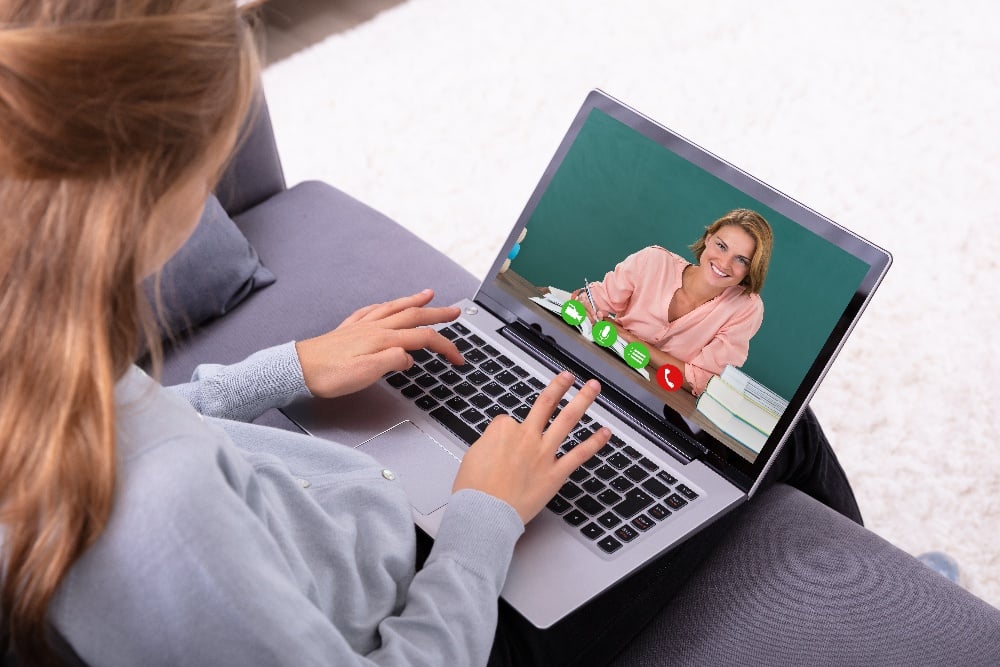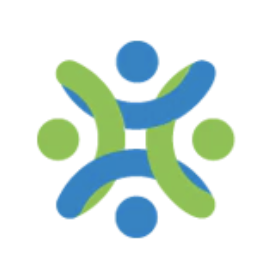
Unless you have been performing an isolation study for NASA, you are keenly aware that schools have been closed for the past few months. Let me clarify – school buildings have closed – but teaching has not stopped. When those doors shut in March, teachers across the country stepped back for a moment to regroup and then went back to teaching with a will. From using the shower wall as a dry erase board in a video chat with the class to sitting six feet away from a student in his driveway to teach a difficult concept, the teaching profession responded to the closing of the doors with all the creativity and will-power that makes us educators. The schools closed, but the teaching didn’t stop.
Unfortunately, the one thing that most helps to level the playing field for students – that daily trip to a classroom – was removed. There are some classrooms that easily made the switch to remote learning. Each student already had a device. Textbooks were already available online. Home was a place where a student was able to do her work. Then there is the digital divide: students with no internet, no laptop, no place to do their work, no one to help. The problems didn’t stop with the student environment. Some educators were challenged with how to deliver content when students may not have had internet access and, sent home packets of worksheets to complete and return for grading. While there might have been germ transmission, it is doubtful that substantial learning occurred.
I could go on elaborating the issues that have been faced with a transition to remote learning with little time for planning and implementation. I could also go on with quantifying the range of responses from all areas. I won’t, though. I only wanted to bring your focus to the fact that the response to remote learning has been varied and not always efficacious. Keep that in mind for a bit.
Kindergarten. Do you remember kindergarten? I do. I remember half days, and my teacher, and the fun stuff, and painting, and the excitement of getting to go to school. I like to think kindergarten is still that way for the little guys. Something that I know is different today than almost 50 years ago is that before those little 4- and 5-year-olds start school, most are given the opportunity to visit the classroom. They’ll sit down with the teacher, and they might play some games together. The teacher will ask some questions, make some notes, and observe this future student. After the visit, all the kindergarten teachers get together, compare their findings and create class groupings. How awesome is this? We take an unknown quantity and evaluate it, then we create groupings based on those findings. And we do this for every new group that comes along. Every year. No one fusses about doing this. It’s expected. We don’t know anything about this student, so we need to do an evaluation before we can place the student. It’s just common sense.
"...I couldn’t be prouder of the profession as a whole."
Why do we do this in kindergarten and not in other grades, though? Typically, by the time that a student finishes a grade, a permanent record has been developed that tracks all sorts of data on the student. Everything from work samples to test scores are captured in this record and it is used to help develop the class rosters for the next year along with providing insight into each student’s strengths and weaknesses. The last few days of school are reserved for entering in those final bits of info that are critical for the start of school in the fall. The teacher is saying “This student knows these things and can do this work at this point in time.” This is valuable stuff for the start of the school year. It’s equivalent to that kindergarten evaluation.
But here’s the problem.
Recall that efficacious comment? The last 2 to 3 months of school of this year aren’t anywhere near approaching normal, and likely were also not effective. Combine that with the fact that this year’s teachers did not have time to indicate where all their students were at in March- they also didn’t have all the information that they needed to indicate a student’s progress through June. So much of all that data that is placed in the permanent record is captured in the last few months of the school year. Did students master that unit that was being taught before schools closed? What about all the units that were taught afterwards? How did measuring mastery happen? Summative assessments didn’t happen, so was it based on completed assignments, or attendance in video class? Was it consistent across students? Classes? Grade levels? What about the students with no internet access? Or the ones who had to help take care of siblings? Or the ones who were doing well to just make it one more day? How do we gauge where they are now? How do we gauge where these students are when school (in whatever form) starts next year?
The answer?
We’ll do it the best way that we can. Class records will be written, progress documented, and best guesses will be made. Will it be enough? No, but it is a place to start. Let me give you something more concrete though, to help with those best guesses. Over the next couple of months, I’ll be working with some friends and colleagues with occasional contributions from some respected names in education to provide you with tools to bring some clarity to those best guesses and anecdotal information. We’ll cover topics like the difference between formative, summative, and what is a norm referenced test. We’ll spend time looking at learning as a continuum and how to diagnose and support instruction. And when you’re ready to step back into teaching this fall, we’ll have tools available for you that will help to capture the break in learning and just how much ground must be made up to get our students back on track.
As I look around at all that is going on in the world of education, I couldn’t be prouder of the profession as a whole. When the going got tough, the teachers of the world said, ‘Hold my drink.’ The playing field has never been level in education and this new way of teaching and learning is just another challenge that educators have met with flying colors.
And that is what just happened.




